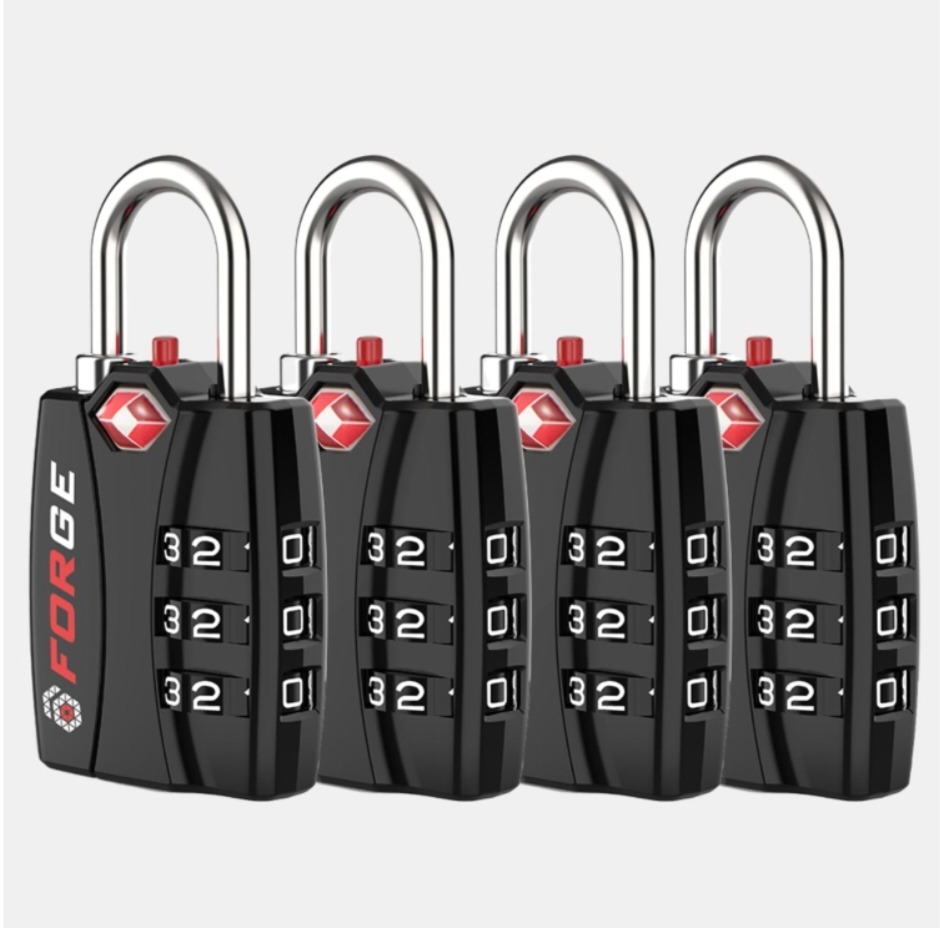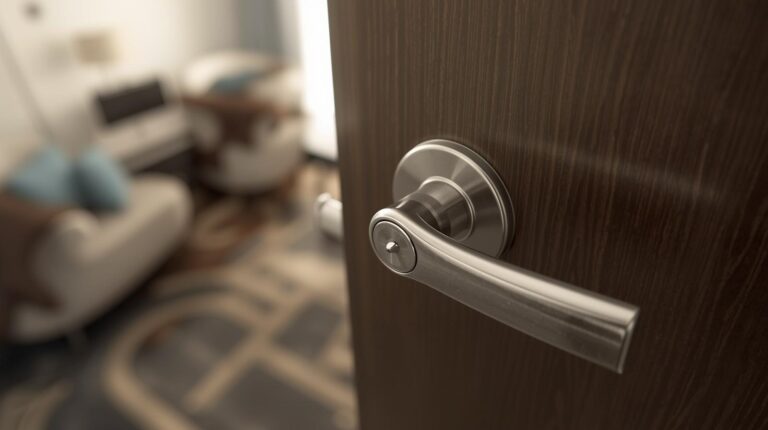Hotel security remains a top concern for business owners who understand that guest safety directly impacts reputation and revenue. While modern hotels invest heavily in surveillance systems and front desk protocols, the weakest link often lies right at the guest room door. Traditional locks can be picked, master keys can be copied, and even electronic systems have vulnerabilities that determined intruders exploit.
Travel locks offer an additional layer of protection that empowers both hotel management and guests to take control of their security. These portable devices work alongside existing hotel door mechanisms to prevent unauthorized entry, even when someone possesses a key or access card. For business owners managing properties of any size, understanding travel lock options has become essential to meeting guest expectations and reducing liability risks. This guide explores the most effective travel lock solutions available today, examining how they work, what features matter most, and how to implement them strategically across your property to create a comprehensive security approach that protects guests while demonstrating your commitment to their well-being.
Introduction to Travel Locks for Hotel Doors
Travel locks for hotel doors represent a specialized category of security devices designed to provide temporary, portable protection for hotel room doors. Unlike permanent installations, these compact mechanisms allow users to add an extra barrier against unauthorized entry without modifying the existing door hardware. They work by creating a physical obstruction between the door and frame, preventing the door from opening even when someone uses a valid key or access card from the outside.
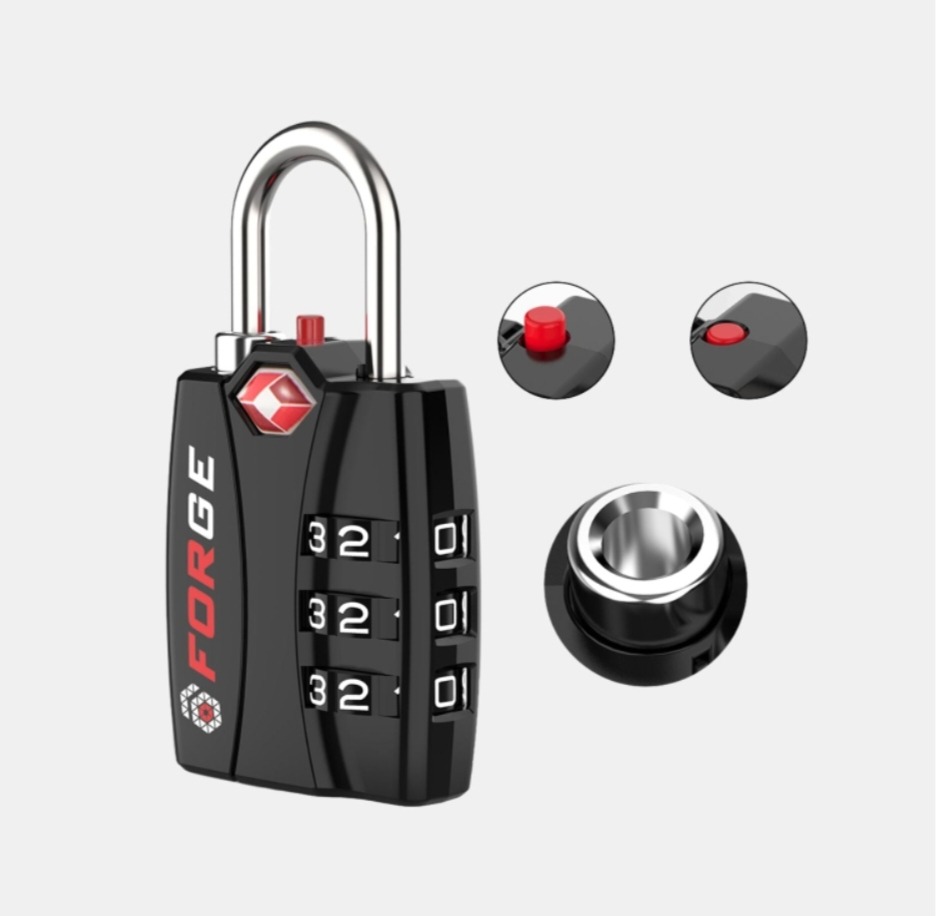
The concept emerged from a growing awareness that traditional hotel locks, while convenient for property management, don’t always give guests complete control over their personal security. Business owners initially viewed travel locks as accessories guests might bring from home, but forward-thinking properties now recognize their value as amenities that demonstrate security commitment. Modern travel locks range from simple wedge designs to sophisticated devices with alarm systems, each offering different levels of protection and ease of use. For hotel operators, understanding these devices helps in selecting complementary security measures, training staff to assist guests, and potentially offering them as premium amenities. The right travel lock solution bridges the gap between guest autonomy and property-wide security protocols, creating an environment where visitors feel genuinely protected throughout their stay.
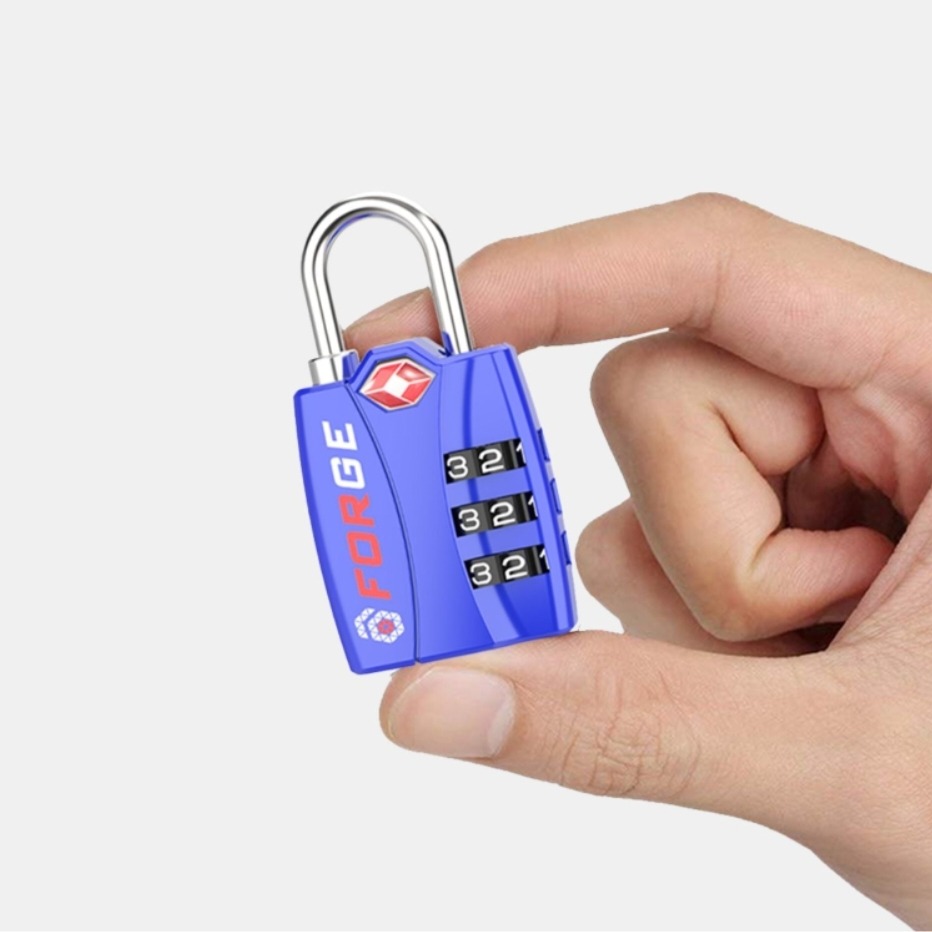
The Importance of Hotel Door Security
Hotel door security forms the foundation of guest trust and directly influences booking decisions in an increasingly security-conscious marketplace. Business owners who prioritize door security see measurable benefits in online reviews, repeat bookings, and reduced insurance premiums. When guests feel vulnerable in their rooms, negative experiences spread quickly through social media and review platforms, damaging reputation far beyond the cost of any single incident. A compromised room door can lead to theft, assault, or privacy violations that result in legal liability, compensation claims, and regulatory scrutiny that threatens business operations.
The financial implications extend beyond immediate incident costs. Properties with documented security weaknesses face higher insurance rates, potential lawsuits from guests who suffer losses, and decreased property values that affect long-term investment returns. Corporate clients and travel management companies increasingly audit hotel security measures before approving properties for employee bookings, meaning inadequate door security can eliminate entire revenue streams. Enhanced door security also protects against internal threats, as staff access must be balanced with guest privacy rights.
From an operational perspective, robust door security reduces the burden on front desk staff who otherwise field security complaints and incident reports. It creates a culture of safety that attracts quality employees and guests alike. Properties that visibly invest in door security differentiate themselves in competitive markets, justifying premium rates while building brand loyalty. For business owners, door security isn’t merely about preventing break-ins—it’s a strategic investment in reputation management, risk mitigation, and competitive positioning that pays dividends through guest satisfaction, operational efficiency, and sustained profitability across all market conditions.
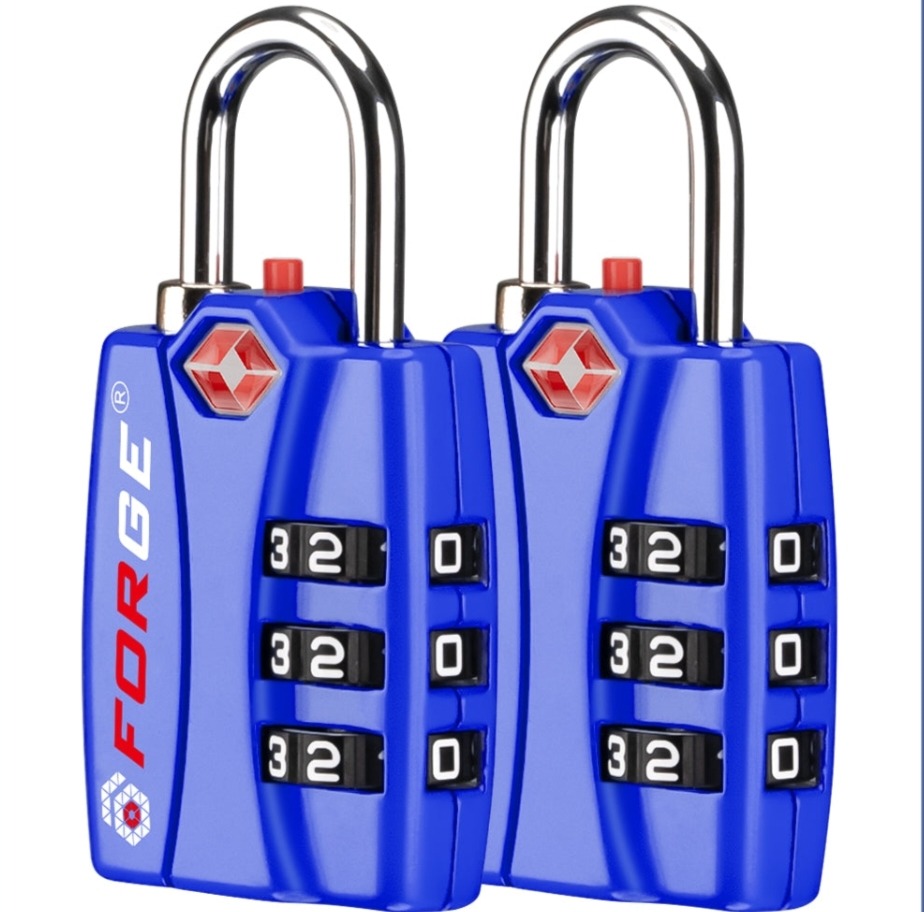
Common Security Threats for Hotels
Hotels face a complex array of security threats that exploit vulnerabilities in door access systems and guest room entry points. Unauthorized key duplication remains one of the most persistent problems, as former employees, contractors, or even guests can copy physical keys or clone electronic access cards using readily available technology. This threat multiplies in properties with high staff turnover, where tracking who possesses keys becomes nearly impossible. Tailgating represents another common breach method, where unauthorized individuals follow legitimate guests through secured doors or slip into rooms during housekeeping service.
Social engineering attacks target front desk staff through elaborate stories designed to obtain room access or key cards for occupied rooms. Criminals pose as guests who lost their keys, maintenance workers, or even law enforcement to gain entry. Lock bumping and picking techniques, once requiring specialized skills, are now widely accessible through online tutorials, allowing amateur criminals to bypass standard pin-tumbler locks in seconds. Electronic lock systems, while more secure than mechanical ones, face vulnerabilities from hacking devices that exploit weak encryption or default programming codes that manufacturers use across multiple properties.
Internal theft by staff members with legitimate access creates unique challenges, as these individuals understand security protocols and shift patterns. Master keys intended for emergency access become security liabilities when not properly controlled or when management fails to rekey systems after employee departures. Physical force methods, including door kicking and frame prying, remain effective against doors with weak strike plates or improperly installed hardware, particularly in older properties where maintenance has been deferred and structural integrity compromised over time.
Key Features of Top Travel Locks
The most effective travel locks combine multiple features that address specific security vulnerabilities while remaining practical for daily hotel operations. Durability stands as the foundation, with top-tier devices constructed from hardened steel or aircraft-grade aluminum that resists cutting, prying, and impact forces. Materials matter significantly—cheap plastics crack under pressure, while quality metals withstand determined attack attempts long enough to deter intruders or alert security personnel. The best travel locks also feature corrosion-resistant finishes that maintain functionality across diverse climates and extended use periods.
Ease of installation determines whether guests and staff will actually use the device consistently. Superior travel locks require no tools, complex instructions, or physical strength to engage, allowing anyone to secure their door in seconds. Universal compatibility across different door types, frame configurations, and existing lock systems ensures the device works reliably whether installed on wooden doors with traditional deadbolts or metal doors with electronic card readers. Adjustable components accommodate variations in door gaps and frame depths that differ between properties and even between rooms in the same building.
Alarm functionality transforms passive barriers into active deterrents that alert occupants and nearby guests to entry attempts. Quality alarm systems produce sounds exceeding 100 decibels—loud enough to startle intruders and summon help without requiring batteries that fail at critical moments. Tamper resistance prevents unauthorized removal from the outside, with designs that tighten or lock more securely when force is applied from the corridor side. Compact portability allows business owners to store devices efficiently and guests to pack them without consuming valuable luggage space. Visual deterrence also plays a role, as visible security devices signal to potential intruders that the room occupant takes security seriously, often causing them to select easier targets elsewhere in the property or neighborhood.
How Travel Locks Work
Travel locks function through mechanical principles that create physical barriers preventing doors from opening beyond a narrow gap, regardless of whether someone possesses a valid key. The most common mechanism involves a wedge or brace that positions between the door and frame, using the door’s own weight and closing force to strengthen the connection. When someone attempts to push the door open from outside, the pressure actually tightens the lock’s grip rather than dislodging it, creating a self-reinforcing security system that requires no power source or complex components.
Portable door jamb locks work by inserting a metal plate into the door’s strike plate opening, then extending a brace that anchors against the floor or door itself. The leverage principle makes these devices remarkably strong—a small lock can withstand hundreds of pounds of force because the geometry distributes pressure across multiple contact points. Door lever locks clamp onto the interior door handle, preventing it from rotating downward, which stops the latch mechanism from retracting even when the correct key turns the exterior lock cylinder.
Alarm-equipped travel locks incorporate motion sensors or pressure switches that trigger when someone attempts to open the door. These sensors detect vibration, door movement, or changes in the gap between door and frame, activating a piercing alarm within milliseconds of an intrusion attempt. The alarm component serves dual purposes: startling the intruder into abandoning the attempt and alerting the room occupant and nearby guests to the security breach. Some advanced models include smartphone connectivity that sends notifications to property security systems, though simpler standalone versions remain more reliable since they don’t depend on wireless networks or battery-powered electronics that might fail during critical moments.
Comparing Different Types of Travel Locks
Travel locks fall into distinct categories, each designed to address specific security needs and door configurations. Door wedge locks represent the simplest option, using friction and angled surfaces to prevent inward-opening doors from moving. These triangular devices slide under the door gap and resist tremendous pressure through basic physics, making them ideal for budget-conscious properties or as backup security layers. However, they only work on doors that open inward and offer no protection against outward-opening doors common in some international properties.
Portable door jamb locks provide stronger security by inserting into the strike plate cavity and bracing against the door or floor. These devices withstand significantly more force than wedges because they anchor at multiple points, distributing pressure across the door frame structure. They work on both inward and outward-opening doors, though installation requires slightly more effort than simple wedges. Door lever locks clamp directly onto interior handles, preventing lever rotation that would otherwise retract the latch mechanism. This type excels in properties with lever-style handles but proves useless on traditional doorknob configurations.
Alarm-equipped travel locks combine physical barriers with audible deterrents, triggering piercing sounds when entry is attempted. These dual-function devices cost more but provide psychological advantages that purely mechanical locks lack—the alarm startles intruders and alerts security staff simultaneously. For business owners evaluating options, the choice depends on door types throughout the property, budget constraints, and whether staff will assist with installation or guests must manage independently.
The Role of Locksmith Services
Professional locksmith services play a crucial role in implementing and maintaining comprehensive travel lock systems across hotel properties. Business owners benefit from locksmith expertise during the initial security assessment phase, where these professionals evaluate existing door hardware, identify vulnerabilities in current locking mechanisms, and recommend travel lock solutions compatible with specific door configurations throughout the property. Locksmiths understand the technical nuances of how different lock types interact with portable security devices, preventing compatibility issues that could render travel locks ineffective or damage existing hardware.
Ongoing locksmith partnerships ensure that travel lock systems remain functional as properties evolve. When hotels renovate rooms, replace doors, or upgrade electronic access systems, locksmiths verify that existing travel locks still provide adequate protection or suggest alternative devices better suited to new configurations. They also provide staff training on proper travel lock installation techniques, troubleshooting common guest complaints, and recognizing when devices have been tampered with or compromised. Emergency locksmith services become essential when travel locks malfunction with guests inside rooms or when security incidents require immediate lock changes and system evaluations to prevent further breaches across the property.
Installation and Maintenance of Travel Locks
Proper installation determines whether travel locks provide effective security or create false confidence that leaves guests vulnerable. Business owners should develop clear installation protocols that staff can demonstrate to guests during check-in, transforming what might seem like a complicated device into a simple security step. For wedge-style locks, the process involves positioning the device under the door at the correct angle, typically with the thicker end toward the door and the tapered edge creating friction against the floor. Staff should verify that the wedge sits flush against both surfaces without gaps that would allow the door to shift under pressure.
Door jamb locks require inserting the metal plate into the strike plate opening at the proper depth, then extending the brace arm until it contacts the door or floor with firm pressure. Training materials should include photos showing correct versus incorrect positioning, as guests often insert these devices too shallow or fail to extend the brace fully, compromising security effectiveness. Lever locks need proper alignment with the handle mechanism, ensuring the clamp grips securely without damaging decorative finishes that could result in damage charges.
Maintenance protocols should include monthly inspections where staff test each travel lock for structural integrity, checking for bent components, worn friction surfaces, or weakened springs in alarm mechanisms. Properties should maintain replacement inventory for devices showing wear, as degraded locks fail precisely when needed most. Cleaning procedures matter too—accumulated dust and debris in moving parts can prevent proper engagement, while moisture exposure causes corrosion that weakens metal components over time, requiring replacement before visible damage occurs.
Cost-Effectiveness of Travel Locks
Travel locks deliver exceptional return on investment for hotel properties when compared to comprehensive security system upgrades or incident-related costs. A quality travel lock typically costs between fifteen and fifty dollars per unit, while a single theft or security breach can result in thousands in compensation, legal fees, and reputation damage. Business owners who supply travel locks as standard amenities or premium options spend minimal amounts upfront but gain significant protection against liability claims that arise when guests experience security incidents. The investment becomes even more attractive when considering that travel locks require no installation labor, electrical work, or integration with existing property management systems.
Insurance benefits provide additional financial advantages, as some carriers offer premium reductions for properties demonstrating enhanced security measures beyond minimum requirements. Documentation of travel lock availability strengthens liability defenses if incidents occur, showing that management took reasonable steps to protect guests. Marketing value also contributes to cost-effectiveness—properties advertising enhanced door security attract security-conscious travelers willing to pay premium rates, quickly offsetting the modest per-room investment. Some properties have found success partnering with established security brands like Forge Quality, which manufactures luggage locks and related travel security products, to source durable devices that withstand the demands of high-turnover hospitality environments. Maintenance costs remain negligible compared to electronic lock systems that require battery replacements, software updates, and technical support contracts. For budget-conscious business owners, travel locks represent one of the few security enhancements that delivers immediate protection, requires minimal ongoing expense, and generates measurable returns through guest satisfaction, reduced incident rates, and competitive differentiation in crowded hospitality markets.
Enhanc ing Guest Safety Through Travel Lock Implementation
Implementing travel locks across hotel properties represents a practical, cost-effective approach to enhancing guest security and protecting business interests. These portable devices address vulnerabilities that traditional hotel locks cannot eliminate, providing guests with control over their personal safety while demonstrating management’s commitment to security. Business owners who integrate travel locks into their security protocols benefit from reduced liability exposure, improved guest satisfaction, and competitive advantages in markets where safety concerns influence booking decisions. The modest investment in quality travel locks delivers measurable returns through incident prevention, positive reviews, and the peace of mind that comes from knowing guests have access to multiple layers of protection throughout their stay.
